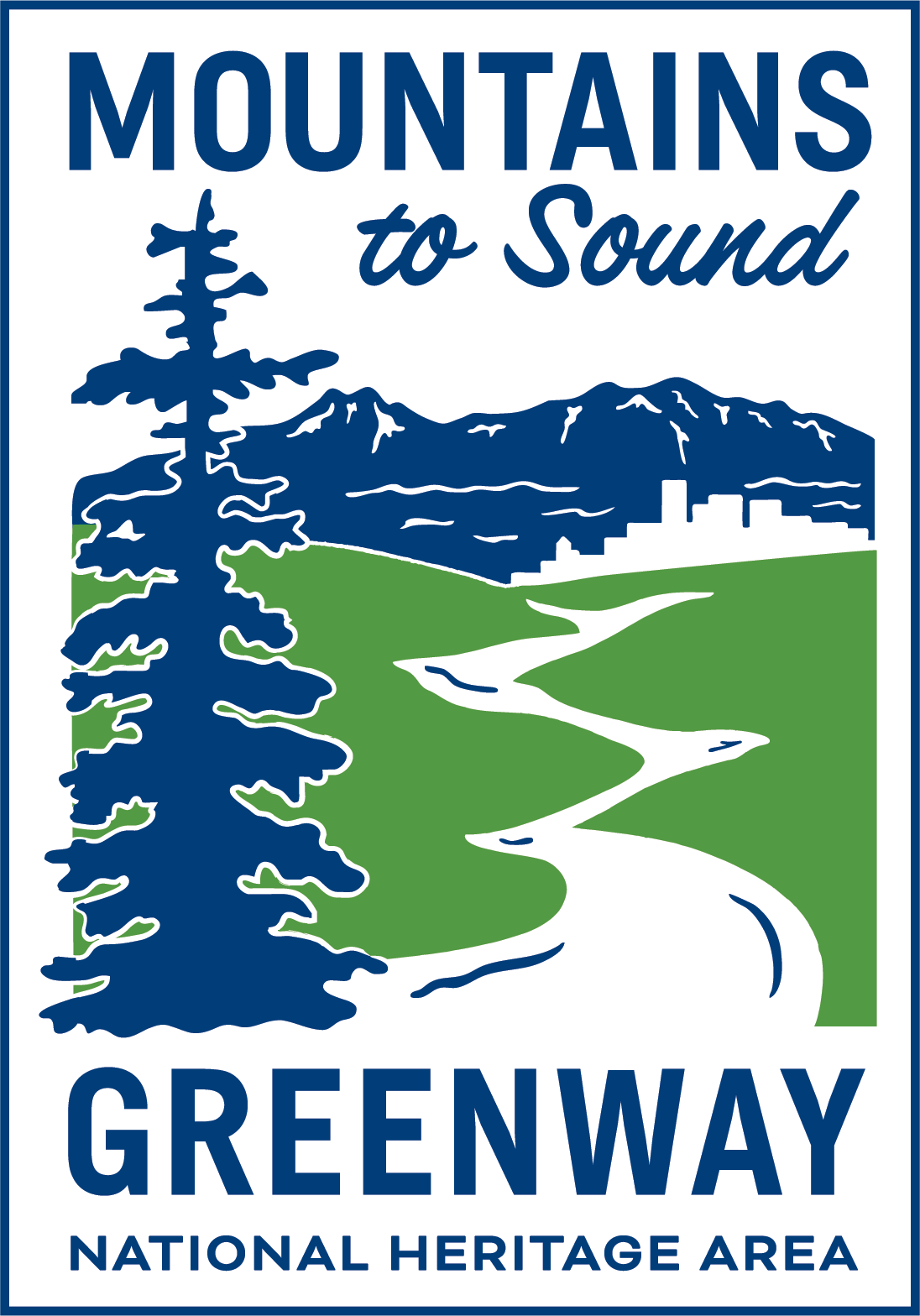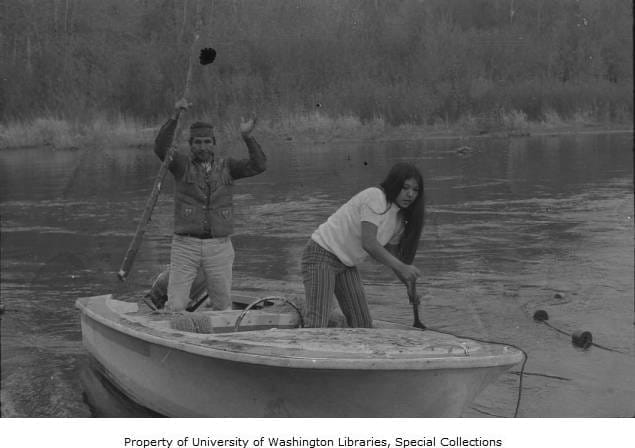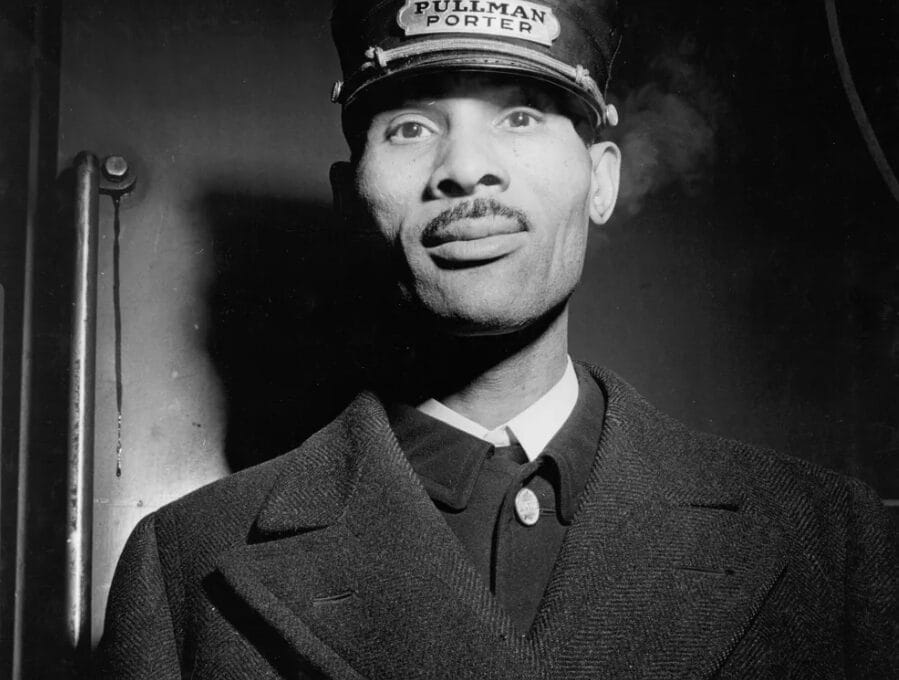Celebrating Women’s History Month by Remembering Alison Bridges Gottfriedson
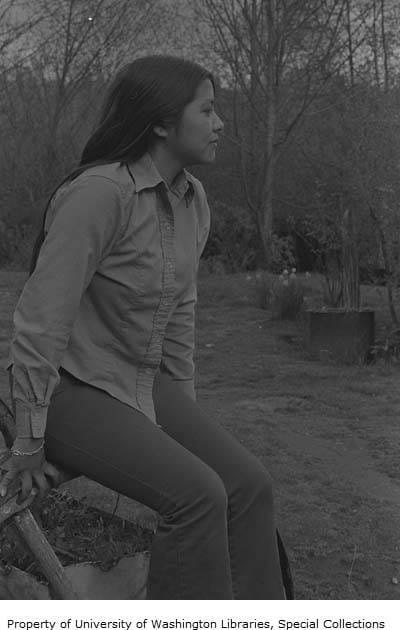
Alison Bridges Gottfriedson was a Puyallup tribal councilwoman and a well-known activist for safeguarding tribal treaty fishing rights in Washington state. Born in 1951, Alison grew up in Frank’s Landing, an Indigenous community along the Nisqually River that became the center of the fish-in movement of the 1960s.
Since time immemorial, fishing in the rivers of Washington has been a vital part of life for Indigenous communities. From a young age, Alison was taught about the cultural significance of fishing and salmon, and she grew up with fish as a main part of her diet. The influx of settlers and industrialization in Washington had contributed to a steady decline of salmon for years, prompting the state to impose restrictions on fishing. Although the right to fish salmon was guaranteed in tribal treaties, signed by Alison’s ancestors with the US government, the state began to reverse its stance on Indigenous fishing, targeting Indigenous communities rather than restricting commercial fishing and managing habitat degradation which were the root of the salmon population decline. State law enforcement regularly threatened, beat, and arrested members of Alison’s community and other Indigenous people for fishing well within treaty rights. It became the norm for officials to use violence and threaten members of Alison’s community with lengthy prison sentences when they were caught fishing. Growing up in Frank’s Landing, Alison witnessed these violent attacks on her community and their rights to fish, causing her to become involved in activism at an early age.
Ready to fight for their rights and inspired by the Civil Rights movement happening on the other side of the nation, tribal leaders in Alison’s community began to organize peaceful demonstrations to protest Indigenous rights to fish. Alison’s uncle, Billy Frank Jr., was a well-known spokesperson for tribal treaty rights and helped organize the first fish-in at Frank’s Landing in 1964. The first fish-in resulted in mass ticketing and detainment of protestors, many of whom were Alison’s family and friends. The protest gained national attention, resulting in numerous other fish-ins around Washington state and attracting other activists and celebrities to join the cause. Alison participated in fish-ins as a young teenager and became an icon of the movement when she was photographed being forcibly restrained by a Washington State game agent during a raid. The photo was printed in newspapers and televised all over the country, attracting other young activists to join the fight for tribal treaty rights. Organized protests like fish-ins eventually led to landmark court cases like the Boldt decision, which reaffirmed the rights of Tribes in Washington to fish in their usual and accustomed areas, allocated 50% of the annual catch to treaty Tribes, and protected Tribes’ role as co-managers for fish and critical habitat.
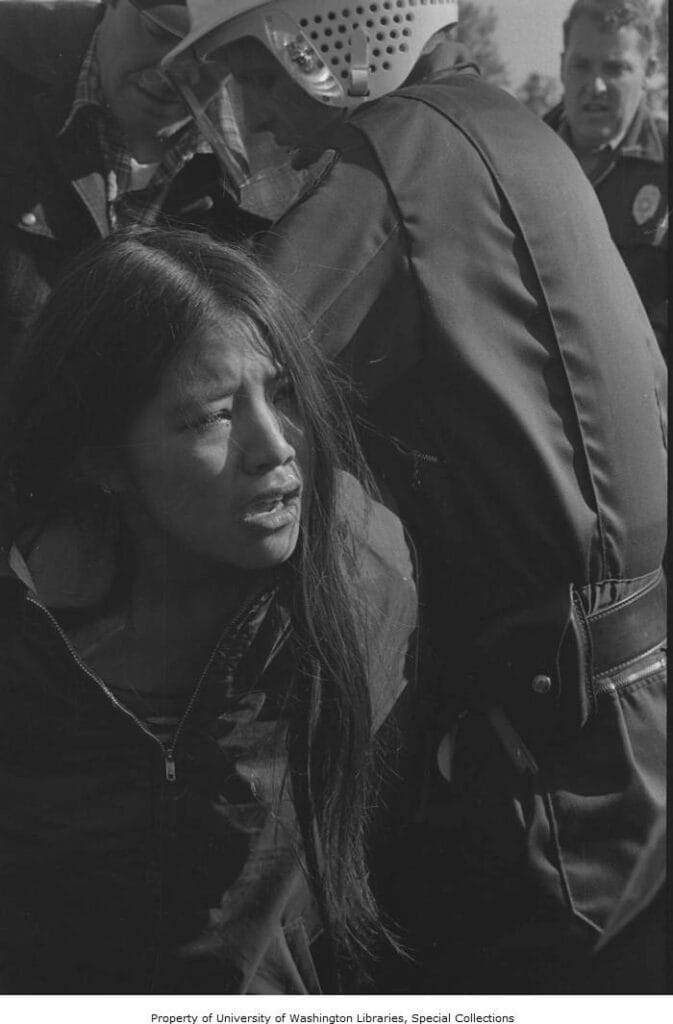
After her participation in fish-ins helped lead to the Boldt decision, Alison continued her activism, being featured in the documentary “As Long as the Rivers Run” where she spoke about Indigenous fishing rights and other tribal sovereignty issues. Undoubtedly, her story helped inspire other young activists across the country. According to this article by Seattle Times Environmental Reporter, Lynda Mapes, Alison continued as a leader in her community, fighting for quality education in Tribal schools, serving as Chairwoman of the Wa He Lut school board and as a member of the National Indian Education Association. Alison dedicated her life to activism and will be forever remembered as a leader for Indigenous rights.
Learn more about Alison’s activism and legacy here
Read about other inspiring women from across the Greenway
Featured photo: Alison and Al Bridges paddling boat on Nisqually River, Frank’s Landing, Olympia, Washington, 1970, University of Washington Libraries, Special Collections, SOC17184
Want to stay in the loop about everything happening across the Greenway NHA? Make sure you’re on our e-newsletter list!
